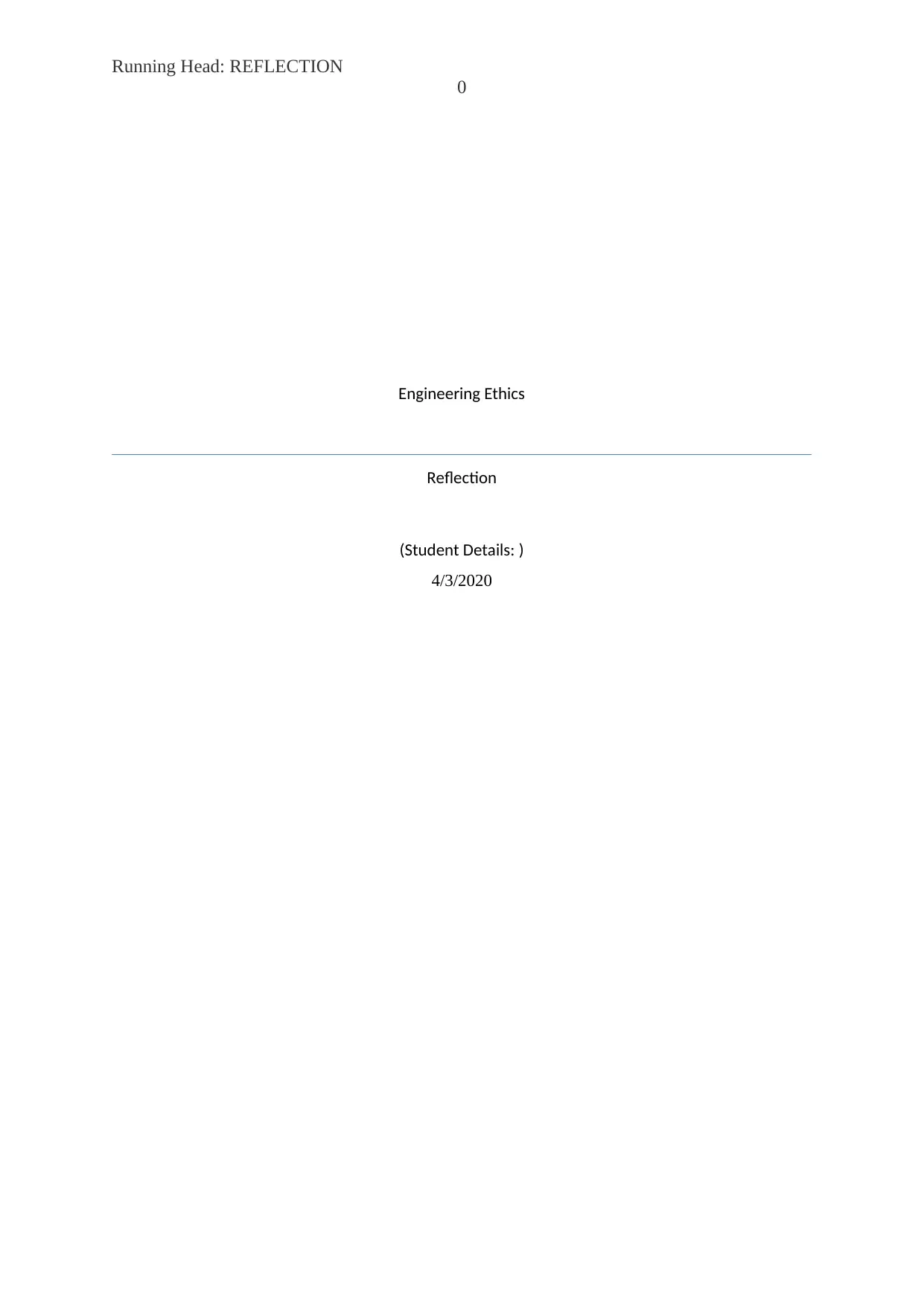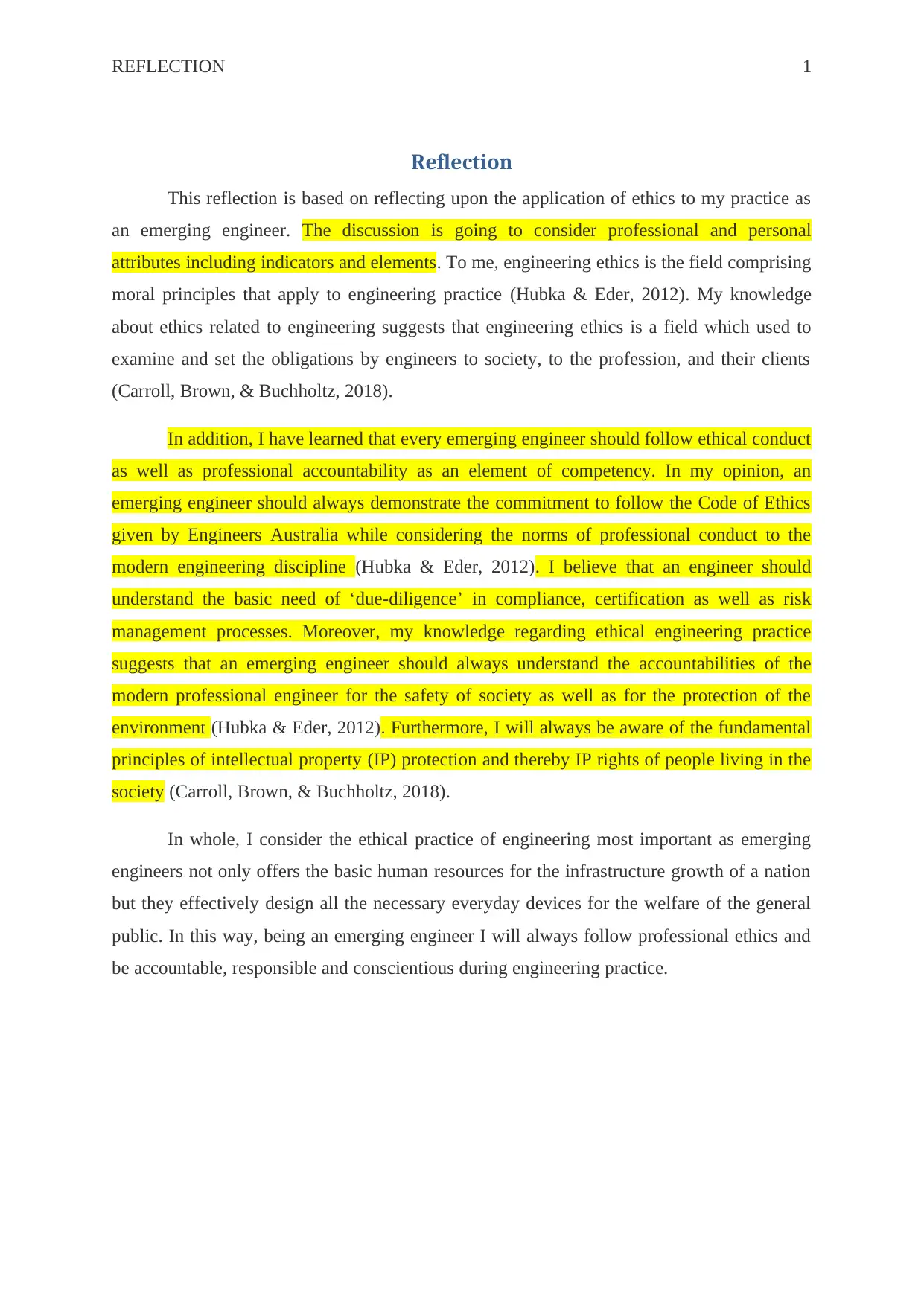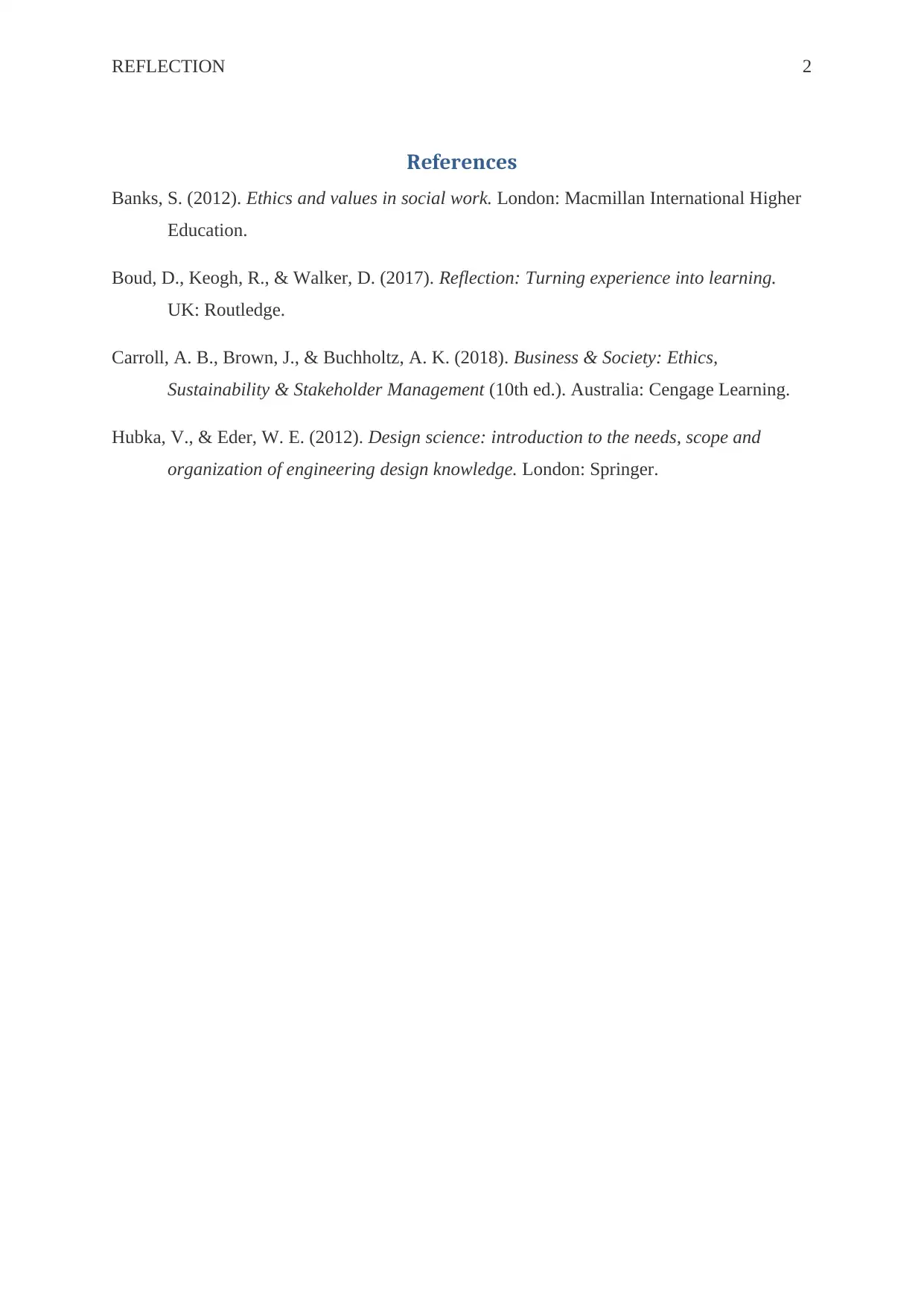ENS 2159: Engineering Ethics Reflection Report, ECU, Semester 1
VerifiedAdded on 2022/09/09
|3
|488
|15
Report
AI Summary
This report presents a reflection on engineering ethics from an emerging engineer's perspective, focusing on the application of ethical principles to engineering practice. The student explores professional and personal attributes, emphasizing the importance of adhering to the Code of Ethics provided by Engineers Australia. The reflection covers key concepts such as due diligence in compliance, risk management, and the engineer's accountability for societal safety and environmental protection. Furthermore, it highlights the significance of intellectual property rights and ethical conduct in the design of everyday devices for public welfare. The student emphasizes a commitment to being accountable, responsible, and conscientious in all engineering practices. The report references several sources including works by Hubka & Eder (2012), Carroll, Brown, & Buchholtz (2018), Banks (2012) and Boud, Keogh, & Walker (2017) to support the arguments.
1 out of 3










![[object Object]](/_next/static/media/star-bottom.7253800d.svg)